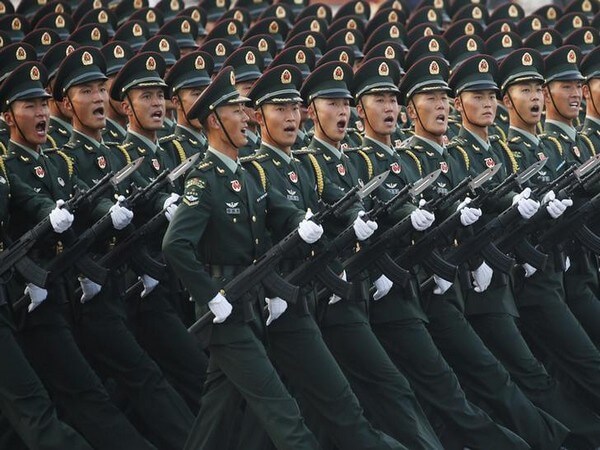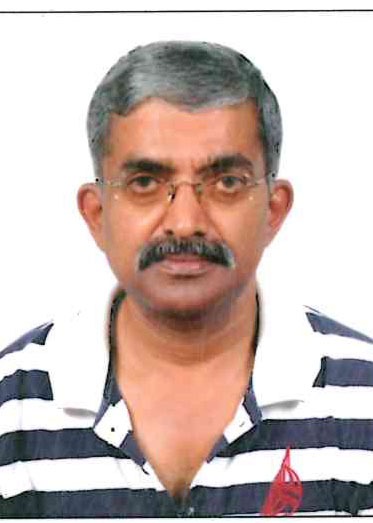
China Appoints New Commander Western Theatre Command – What India Should Read Into the Move

From the days of Arjuna or Alexander, every side has spent time and effort to know about opposing commander/s and understanding the whys and wherefores of what drives them, what their personal traits that may spill over into their generalship are, and how they have displayed their skills in the past. It also has been a continuing effort on all sides to understand what exactly the person commanding the forces in the field has been tasked with by his sovereign.
On 6 September 2021, the Chinese Central Military Commission (CMC) announced the promotion of six Lieutenant Generals of the People’s Liberation Army (PLA) to full General’s rank and their new appointments.[1] Among the six newly-minted Generals was General Wang Haijiang, who takes over command of the Western Theatre Command (WTC), that has direct control over the Sino – Indian Line of Actual Control, including the ongoing standoff opposite Ladakh.
General Wang Haijiang 汪海江 replaces General Xu Qiling 徐起零, who was promoted in July this year. Xu’s predecessor, General Zhang Xudong 张旭东 replaced General Zhao Zongqi 赵宗岐, under whose watch the China – India confrontation started, in December 2020. The Western Theatre Command has thus seen four commanders in 10 months!
WTC Commander’s Experience
General Wang’s recent military profile includes the following appointments:
– Deputy Commander of South Xinjiang Military District (MD) till 2016.
– Moved to Tibet MD as Deputy Commander.
– Took over as Commander of Tibet MD in January 2020.
– Side stepped to Xinjiang MD as Commander in April 2021.
– Promoted and placed as Commander, WTC on 06 September 2021.
It can thus be seen that he has served in South Xinjiang Military District (MD), Tibet MD and Xinjiang MD. He has had a wealth of experience continuously “in theatre”. If experience in operating in the theatre has indeed been a criterion, if not the criterion, for selecting him for the post, it is unusual for the PLA, who have not been very particular about this aspect in the past.
Wang is only 58 this year and was promoted to Lieutenant General rank in 2019. He has the seniority, experience and age to be in the reckoning for higher rank and responsibility, if he does a good job. There is at least one source which describes him as having experience in the Vietnam War[2], but he would have been just 16 then, and that experience may not help him much now.
Analysis
Renewed Attention to Tibet
In the recent three months, a number of VIPs – the who’s who of the Communist Party of China – have visited Tibet are as under.[3]
| Ser No | Period
(2021) |
Delegation (Leader) | Appointment held | |
| 1. | July | Xi Jinping | ||
| Liu He | PB, Vice Premier, Finance Commission | |||
| Ding Yuexiang | Secretary, Party Secretariat | |||
| Yang Xiaodu | Deputy Secretary, CCDI | |||
| Chen Xi | President, Party School | |||
| General Zhang Youxia | Vice Chairman, CMC | |||
| He Lifeng | Minister in charge NDRC | |||
| 2. | Aug | Wang Yang | PBSC, Chairman, CPPCC | |
| Admiral Miao Hua | CMC Member | |||
| 3. | Sep | Li Xi | Party Secretary Guangdong | |
| Ma Xingrui | Governor, Guangdong | |||
| 4. | Sep | Wang Chen | Vice Chairman, NPC Standing Committee | |
Clearly there is attention from the very top being focussed on Tibet. The visits and the reports all indicate a new thrust to further “sinicizing” Tibet, and ensuring that the sensitive Tibet flank is not exploited by unfriendly forces. Xi is reported to have recommended that cadres have a fighting spirit in the current situation; he said that at the present moment, “the world’s unprecedented changes have been accelerating and the great rejuvenation of the Chinese nation has arrived at a critical period. The risks and challenges that the CCP faces have increased significantly. It is impractical to dream of always living in a peaceful environment without taking on any struggles.”
He advised the young cadres: “dare to fight … at any time, Communists should have the bones and courage not to be afraid of anything, and not to yield to anyone.”[4]
What needs to be taken note of is not what Xi said; that is for public, including international, consumption. What has been probably said but not reported is equally important. Tibet, and parts of Qinghai, have traditionally been “hardship postings” to Han Chinese, dwellers of the plains. Despite the best efforts of Party ideology and monetary rewards, Han Chinese have never quite reconciled to living in, and working for, Tibet as part of the Sinic world. There have been stage whisper reports of very senior cadres avoiding mandated visits to Tibet[5]. The focus being forced on Tibet is clearly in response to the situation that prevails in the Sino – Indian context, and indicates that even half a century after the “peaceful liberation” of Tibet, integration is still very far.
Further, guessing what has not been talked about, or even hinted at in reports, activities may actually be hotting up behind the scenes on the issue of the succession of the Dalai Lama. The very fact that such possibilities are not even being discussed tend to stoke suspicions that this calm, and the defensive measures being taken in Tibet, may be portents of an impending storm.
New Commanders in Important Command Positions
Gen Xu Qiling, who has relinquished the command of the WTC is likely to be placed as Commander Eastern Theatre Command (TC) or may move up to Beijing. The Southern TC already has a new commander since July 2021. All PLA commanders of Army, Navy, AF, WTC, STC and NDU are 2021 promotions. These commanders are all relatively young and have up to three to four years till their retirement.
Need for Stability at Borders
With the evolving international situation and an impending Sino – US cold war, the Communist Party of China needs stability at all its borders and frontiers. In Chinese perception, the abrupt if unsightly withdrawal of US troops, and consequent reduction of US (overt) involvement, in Afghanistan and the Middle East has likely facilitated the US focus on managing the China challenge better. Aggressive policies adopted so far in the Xi era have resulted in pushback from several areas, creating a perception in China of being hemmed in by a world that appears envious of the near – realization of the “Chinese Dream”.
Loyal Commanders
With restrictions on his term lifted, Xi likely sees himself in the driving seat well beyond his present term. Unfinished agenda such as “reunification of the motherland” may indeed be slated to take place in the years leading up to the 2035 and 2049 datelines. Xi Jinping may well be placing people whom he has promoted to positions of critical importance in plans for the near future.
Party’s Armed Forces – “Irregular” DNA
The PLA claims a history longer than the Party; the emphasis since has constantly been that the PLA is firmly under the Party’s control. Reflecting the irregular origins of the force, the “regularization” of the PLA is still a work in process. Many conditions that armed forces across the world take for granted, such as a mandatory retirement age, tenures for appointments, recommended career paths, and so on are still being evolved in the PLA. Therefore, ambiguities are likely to persist, and we may not be able to understand, much less predict, the career paths of the PLA top brass.
Conclusion
Political “correctness” and reform continues to shape the personnel policies of the PLA; the recent changes seem to indicate that territorial and sovereignty issues are being given importance alongside. Ongoing personnel changes in the PLA especially at higher ranks seems to indicate that experience along sensitive border areas, hot button areas like Taiwan and the South China Sea, as well as friends(guanxi) and experience in working with the Headquarters offices are, at least for the present, avenues to get promoted.
POST SCRIPT
Amusing factoid
The Chinese characters for the new Commander WTC are: 汪海江. The three dots to the left of each character is what in Mandarin called a “radical”, here the “water radical”,氵, a radical which is colloquially referred to as “three drops of water” (三点水 – sān diǎn shuǐ), and symbolizes flowing water.[6]
In Chinese philosophy, water (Chinese: 水; pinyin: shuǐ), is the low point of the matter, or the matter’s dying or hiding stage. Water is the fifth stage of Wu Xing, the five elements. Water is the most yin in character of the five elements. Its motion is downward and inward, and its energy is stillness and conserving. In Chinese Taoist thought, water is representative of intelligence and wisdom, flexibility, softness, and pliancy.[7]
We shall have to wait and watch if the new commander shows wisdom, flexibility et al!
***************
References-
[1] . http://cpc.people.com.cn/n1/2021/0906/c64094-32219301.html, “The Central Military Commission held a ceremony to promote the rank of general”
[2] https://twitter.com/neilthomas123/status/1434937233434415108 Neil Thomas 牛犇 ,@neilthomas123
[3] https://chanakyaforum.com/the-importance-of-tibet-ethnic-work-in-progress/, 12 Sep 2021 The Importance of Tibet – ‘Ethnic Work’ in Progress by Mr Claude Arpi
[4] Ibid.
[5] Ibid.
[6] https://www.digmandarin.com/chinese-characters-learning-the-three-drops-of-water-radical.html
[7] https://en.wikipedia.org/wiki/Water_(wuxing)
***************
Disclaimer
The opinions expressed in this article are the author’s own and do not reflect the views of Chanakya Forum. All information provided in this article including timeliness, completeness, accuracy, suitability or validity of information referenced therein, is the sole responsibility of the author. www.chanakyaforum.com does not assume any responsibility for the same.
Chanakya Forum is now on . Click here to join our channel (@ChanakyaForum) and stay updated with the latest headlines and articles.
Important
We work round the clock to bring you the finest articles and updates from around the world. There is a team that works tirelessly to ensure that you have a seamless reading experience. But all this costs money. Please support us so that we keep doing what we do best. Happy Reading
Support Us





















POST COMMENTS (1)
Mukesh.Naik